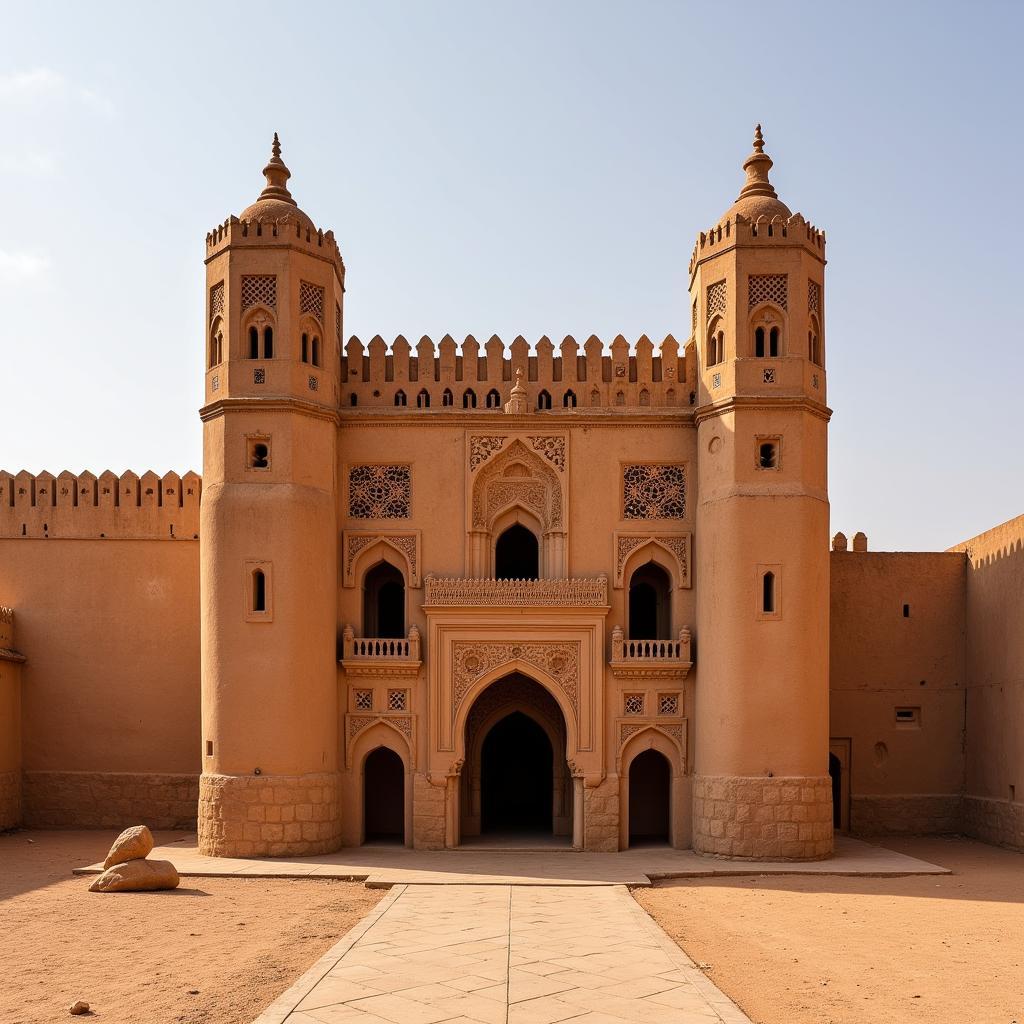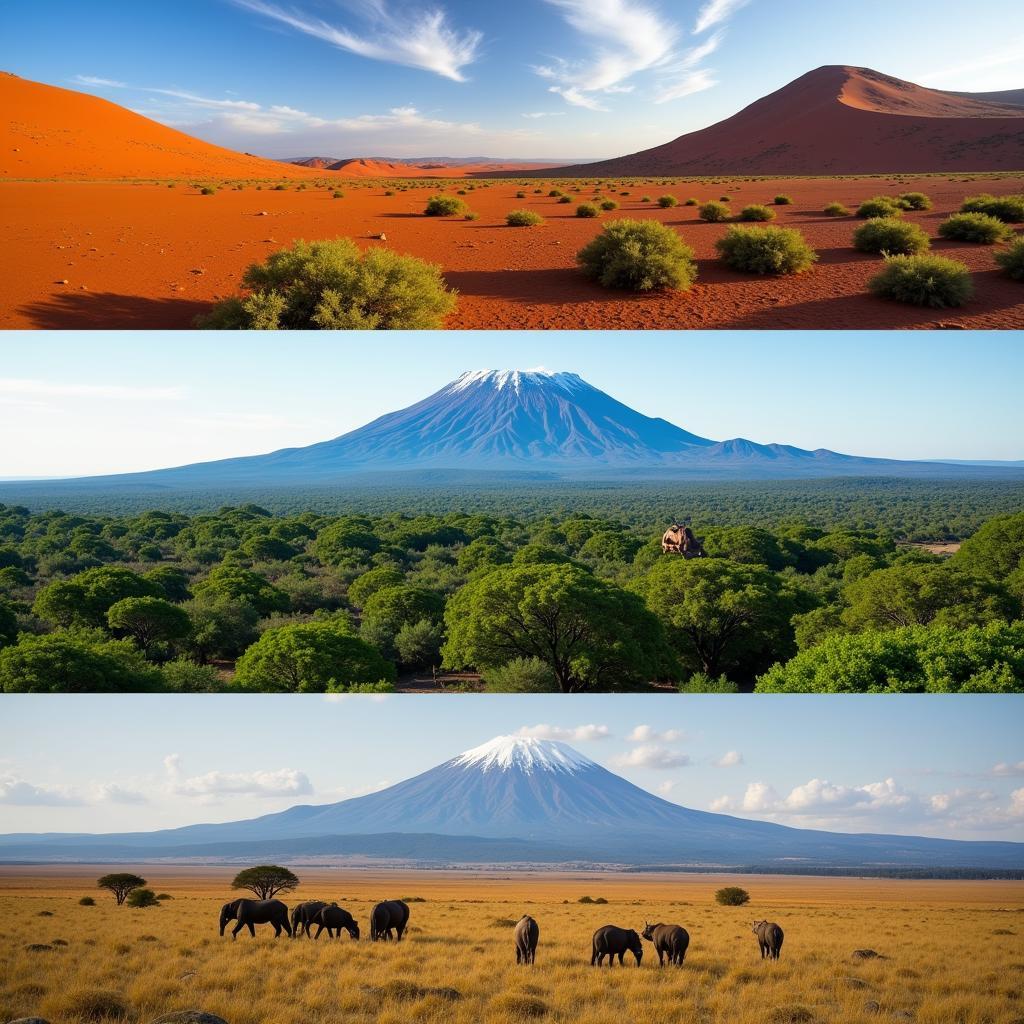Unmasking the Myth of African Barbarians
The term “African Barbarians” carries a heavy weight of historical misrepresentation and prejudice. It’s a label that has been used to justify colonialism, exploitation, and the erasure of rich and diverse cultures. This article delves into the origins of this harmful stereotype, exploring its impact and revealing the vibrant reality of African societies throughout history.
The Colonial Construction of “African Barbarians”
The idea of “African barbarians” wasn’t born in a vacuum. It was meticulously crafted during the colonial era to serve specific political and economic agendas. European powers, seeking to legitimize their conquest and exploitation of the African continent, propagated a narrative that portrayed African societies as uncivilized, savage, and inherently inferior. This narrative served to dehumanize African populations, making it easier to justify their subjugation and the seizure of their lands and resources. This racist ideology permeated European literature, art, and scientific discourse, solidifying the image of the “African barbarian” in the global consciousness.
The Role of Media and Propaganda
Media and propaganda played a crucial role in disseminating the “African barbarian” stereotype. Travelogues, newspapers, and even scientific publications often depicted Africans as primitive and violent, reinforcing pre-existing prejudices and shaping public perception. These distorted representations served to justify colonial policies and garner public support for imperial expansion.
Challenging the Narrative: The Rich Tapestry of African Civilizations
The historical record paints a drastically different picture of Africa. From the ancient kingdoms of Kush and Aksum to the sophisticated empires of Ghana, Mali, and Songhai, Africa boasts a long and illustrious history of complex societies, advanced technologies, and vibrant cultural traditions. These civilizations thrived for centuries, contributing significantly to global knowledge and innovation.
Innovation and Intellectual Achievements
African societies developed sophisticated systems of governance, trade, and agriculture. They made significant advancements in mathematics, astronomy, medicine, and metallurgy. The Great Mosque of Djenné in Mali, a testament to African architectural ingenuity, stands as a powerful symbol of this rich heritage.
 Great Mosque of Djenné, Mali – A Marvel of African Architecture
Great Mosque of Djenné, Mali – A Marvel of African Architecture
The Legacy of the “Barbarian” Myth and its Continued Impact
The “African barbarian” myth, though demonstrably false, continues to cast a long shadow. It fuels ongoing prejudice and discrimination, impacting everything from international relations to economic development. Unpacking and dismantling this harmful stereotype is crucial for fostering a more accurate and nuanced understanding of Africa’s diverse cultures and histories.
Combating Stereotypes Through Education and Awareness
Education and awareness are essential tools in combating the lingering effects of this harmful stereotype. By promoting accurate and nuanced portrayals of African history and culture, we can challenge ingrained biases and foster a greater appreciation for the continent’s rich and diverse heritage.
Conclusion
The term “African barbarians” is a relic of a colonial past, a harmful stereotype that has no place in our understanding of Africa. By acknowledging the historical context of this myth and actively engaging with the true narratives of African history and culture, we can dismantle these damaging stereotypes and celebrate the rich tapestry of human experience that Africa represents. Let us move beyond the simplistic and inaccurate labels of the past and embrace a more nuanced and respectful understanding of this vibrant continent.
FAQ
- What is the origin of the term “African barbarians”?
- How did colonialism contribute to the spread of this stereotype?
- What are some examples of advanced African civilizations?
- How does this myth continue to impact contemporary society?
- What can be done to challenge and dismantle this harmful stereotype?
- What resources are available for learning more about African history and culture?
- How can we promote a more accurate and nuanced understanding of Africa?
Need More Information?
For further assistance, please contact us at Phone Number: +255768904061, Email: kaka.mag@gmail.com Or visit us at: Mbarali DC Mawindi, Kangaga, Tanzania. We have a 24/7 customer service team. We also have articles on related topics such as African Art, Music and Food. Check them out!

